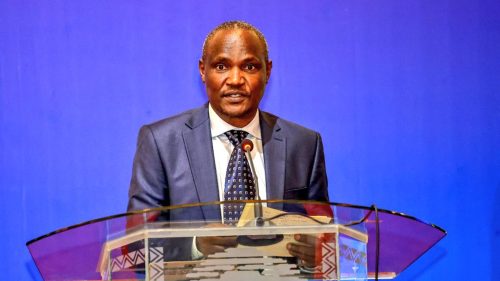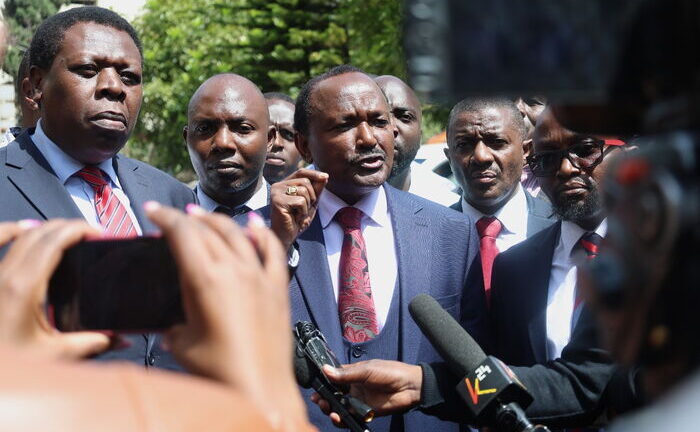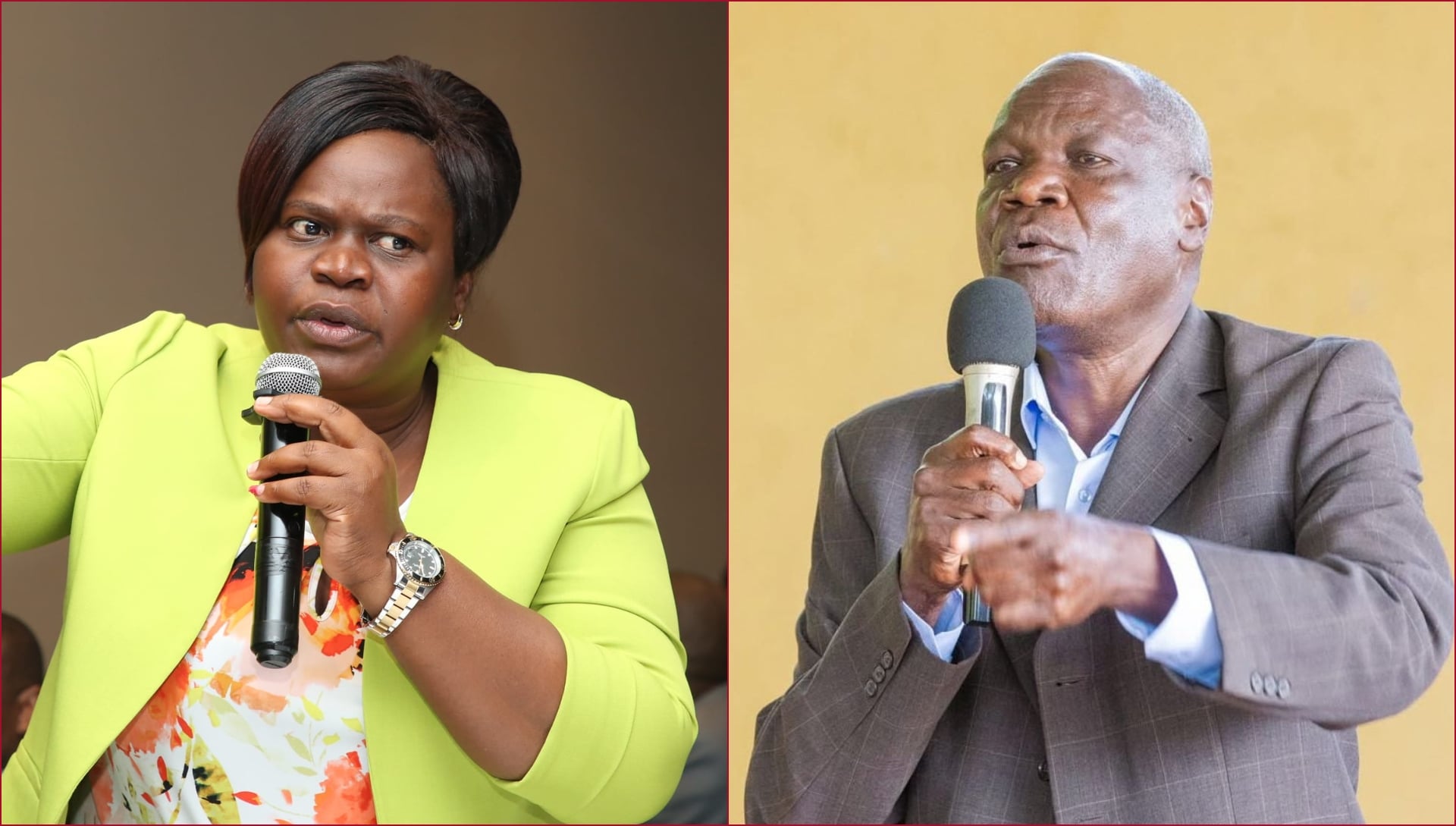
Treasury Cabinet Secretary John Mbadi has come out swinging to dispel rising fears over the much-debated Finance Bill 2025, urging Kenyans—especially the youth—not to fall into the panic trap of last year.
Speaking during a fiery town hall meeting on Friday, Mbadi shocked attendees by boldly declaring that the controversial bill does not introduce any drastic tax increases.
“There are no massive tax hikes in this bill,” Mbadi said emphatically, “We’re not using this Finance Bill as a money-grab.”
His statements come amidst a wave of public anxiety, with memories of the Finance Bill 2024 protests still fresh in the minds of many. But Mbadi insists: this time, it’s different.
“Before you go into rage mode like 2024, pause. Read the bill. Understand it,” he pleaded, aiming his message squarely at the country’s fired-up youth.
Mbadi made it clear that the core purpose of the bill is to streamline tax operations, not to squeeze more money from Kenyans. He described it as a technical fine-tuning, intended to eliminate loopholes and inefficiencies that have long haunted the nation’s tax system.

“We’re fixing the engine, not changing the fuel,” Mbadi explained. “It’s about making the tax system work better—not making it heavier.”
In a bold critique of past tax policies, Mbadi admitted that the current tax regulations are riddled with confusion, calling the overhaul long overdue.
“There are contradictions and grey zones that have blocked progress,” he said. “This bill aims to clean that mess.”
DEBT CRISIS LOOMING? CS REVEALS WORRYING FUTURE!
In another bombshell revelation, Mbadi raised the alarm on Kenya’s public debt crisis, warning that a massive chunk of national debt is maturing by 2032—and it could break the economy if mishandled.
“The storm is coming. By 2032, a serious portion of our debt will come due,” Mbadi warned. “But don’t panic—we’ve got a plan.”
He assured the public that the government is taking urgent action to secure the nation’s financial stability, focusing heavily on reducing the budget deficit—a move he labeled as non-negotiable for debt sustainability.
According to Mbadi, Kenya has already made strides since 2020, cutting the deficit from 8.3% of GDP to 5.2%—but admitted more could’ve been achieved if all revenue strategies were fully enforced.
“We’ve come down, but we’re not done yet,” he admitted. “Had we followed through on every tax proposal, we’d be in an even better position.”
Mbadi wrapped up by calling for calm, clarity, and engagement, urging Kenyans to stop the speculation and critically examine the bill before fueling more chaos.






